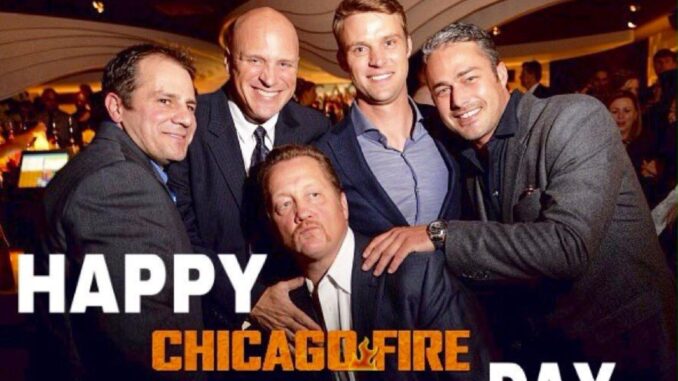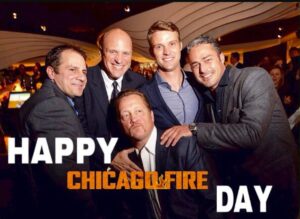
The One Chicago Universe’s Unforgettable Crossovers
The “One Chicago” franchise, with shows like Chicago Fire, Chicago P.D., and Chicago Med, has brought viewers a high-octane experience filled with drama, action, and emotional storylines. But one of the highlights fans grew to love was the annual One Chicago crossovers. These high-stakes episodes united our favorite characters, blended plotlines, and created a truly interconnected universe.
But what happened to these crossovers? If you’re wondering why they’ve become so rare, you’re not alone. Let’s dive into what made these episodes so captivating and explore the reasons behind their current scarcity.

The Rise of ‘One Chicago’ Crossovers
Why Did ‘One Chicago’ Begin Creating Crossovers?
The One Chicago crossovers weren’t just a marketing gimmick—they brought an added depth to each storyline. With overlapping stories across Chicago Fire, Chicago P.D., and Chicago Med, these crossovers gave fans a dynamic, unified world that became a fan favorite.
The Impact of Crossovers on Viewer Engagement
Each crossover was an event in itself. It increased viewer engagement, as audiences tuned in not just for their favorite show but to see the entire One Chicago team face city-wide threats together. These episodes fueled fandoms, discussions, and buzz on social media, turning one-off viewers into devoted fans.
How Crossovers Strengthened Character Relationships
Crossovers weren’t just about plot—they deepened the relationships between characters. We saw friendships between firefighters and detectives grow, doctors risking their lives, and the entire city working as one unit. These bonds made the universe feel real, showing how interconnected lives really are in a bustling city like Chicago.
The Decline of ‘One Chicago’ Crossovers: Where Did They Go?
Scheduling Challenges in Coordinating Crossovers
One of the main challenges with One Chicago crossovers is the logistical nightmare of coordinating three separate casts. The producers had to work around complex scheduling conflicts, making it hard to regularly align everyone’s availability for big, multi-episode events.
Budget Constraints and High Production Costs
Big crossovers come with big budgets. Between special effects, location setups, and bringing in actors from multiple series, the costs quickly add up. As production costs rose, budgets for these elaborate episodes became tighter, and prioritizing these crossovers became more challenging.
Impact of the Pandemic on TV Production
The COVID-19 pandemic drastically changed television production across the board. With health protocols, filming restrictions, and social distancing, creating a crossover event safely was almost impossible. Productions had to prioritize single-show filming rather than gathering large casts together, impacting the frequency and scale of these crossover events.
What Are the Fans Saying? The Reaction to Fewer Crossovers
Fans Miss the Big Events of ‘One Chicago’
Social media is filled with fans asking, “Where did the crossovers go?” These events became cherished by fans who loved the thrill of seeing their favorite characters team up. As crossovers became less frequent, fans have voiced their desire to see the big events return.
Why Crossovers Were More Than Just Episodes for Fans
For many, the crossovers were more than TV—they were like a community event. Watching them was a shared experience, with fans discussing storylines, guessing plot twists, and bonding over cliffhangers. Without them, there’s a missing piece in the One Chicago experience.
The Role of Storylines in the Decline of Crossovers
More Standalone Plots in Recent Seasons
Recently, each One Chicago show has focused more on standalone plots and character development within their respective series. While this shift allowed for deeper, individual storylines, it reduced the need for crossovers to connect story arcs, making them less of a necessity.
Character Losses and Team Reshuffles
As key characters have left or been reshuffled within the One Chicago shows, the dynamics that made crossovers so exciting have shifted. Without these cornerstone characters, the crossovers don’t have the same draw, making it harder to create the same emotional impact.
The Future of ‘One Chicago’ Crossovers: Is There Hope?
Hints from Showrunners: Could Crossovers Return?
Though full-scale crossovers are currently rare, showrunners have hinted that they haven’t ruled them out entirely. Smaller crossovers or one-off appearances are still possible, and fans may yet see another large-scale event if the timing and stories align.
Possible Comeback with Smaller Crossover Events
Instead of massive, multi-episode arcs, the future may hold smaller crossovers that allow for character appearances across shows without the complexity of full crossovers. This approach might help balance fan desires with logistical feasibility.
The Potential for Digital Crossovers and Special Features
With digital platforms on the rise, a new approach could involve exclusive crossover content on streaming services, behind-the-scenes glimpses, or short, interconnected stories that don’t require the large-scale production of traditional crossovers.
The Pros and Cons of Fewer Crossovers in ‘One Chicago’
Pros: Deeper Character Focus in Individual Shows
With fewer crossovers, each show has more freedom to dive into character development and tackle specific themes without having to align with others. This focus has allowed for some unique and memorable standalone episodes.
Cons: Missing the Unifying Story Arcs Fans Love
However, with the crossovers now less common, fans miss the grand unifying story arcs that these episodes brought to the One Chicago universe. The interconnected magic feels somewhat lost, leaving a gap in the hearts of fans.
How Crossovers Could Be Reimagined for Modern Viewers
Creating Limited Mini-Series Crossovers
One creative idea is a limited mini-series crossover event, where all three shows contribute a couple of episodes. This format would provide the excitement of crossovers while avoiding the logistical nightmares of full-season integration.
Adding Unique Themes for Future Crossovers
To make crossovers fresh and exciting, future episodes could explore unique themes, like holiday crossovers, mystery events, or episodes focusing on social issues impacting all three departments.
Emphasizing Fan Feedback in Future Decisions
Producers of One Chicago have been responsive to fan feedback before. As fans continue to express their love for crossovers, showrunners may weigh their options and find ways to reintroduce these events to satisfy loyal viewers.
